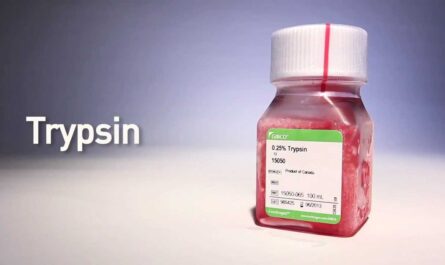Clinical laboratory tests, also known as medical laboratory tests, are medical tests performed on clinical specimens such as bodily fluids like blood, urine, and tissues to obtain information about the health of a patient to assist in diagnosis, treatment, and prevention of disease. Some common clinical laboratory tests include complete blood count (CBC), comprehensive metabolic panel (CMP), lipid panel, liver function tests, thyroid function tests, venereal disease research laboratory (VDRL) tests, drug screening tests, and more. Clinical laboratories use sophisticated instruments and technologies to perform a wide range of automated, accurate, and precise analytical tests on specimens to provide critical information to healthcare providers.
Types of Clinical Laboratory Tests Industry
There are various types of Global Clinical Laboratory Tests that can be broadly categorized as follows:
Chemistry Tests
Chemistry tests measure levels of substances in body fluids like blood and urine to evaluate organ functions, electrolyte and acid-base balance, kidney and liver functions, blood sugar level, and other metabolic biomarkers. Some common chemistry tests include glucose, liver function tests (LFTs), lipid panel, blood urea nitrogen (BUN) test, creatinine test, etc.
Hematology Tests
Hematology tests analyze components and features of blood like red blood cells (RBCs), white blood cells (WBCs), platelets, and hematocrit to detect conditions affecting the blood and bone marrow. Routine hematology tests include complete blood count (CBC), bleeding time, prothrombin time (PT), partial thromboplastin time (PTT), fibrinogen, etc.
Immunology Tests
Immunology tests evaluate the immune system’s response and ability to fight infections by measuring specific antibodies and antigens in blood or body fluids. Examples include C-reactive protein (CRP) test, erythrocyte sedimentation rate (ESR) test, detection of specific antibodies like rheumatoid factor (RF), etc.
Microbiology Tests
Microbiology tests identify various microorganisms like bacteria, viruses, parasites, and fungi that may cause infection in clinical specimens. Common microbiology tests are complete urine examination, stool examination, wound/tissue culture, respiratory virus panel, HIV testing, hepatitis panels, strep test, etc.
Genetic and Molecular Testing
Genetic and molecular testing involves analyzing DNA, RNA, or protein biomolecules in body fluids and tissues to detect gene mutations and genetic disorders. Examples include screening newborns for genetic conditions, testing tumor samples for targeted cancer therapies, prenatal testing, etc.
Histopathology Tests
Histopathology or anatomical pathology tests examine tissues to analyze cellular structures and diagnose cancer and other tissue-based diseases. Common histopathology tests involve examining biopsies under a microscope after staining procedures.
Other Specialized Tests
Other types of specialized clinical laboratory tests include toxicology testing to detect drugs and toxins in urine, semen analysis to evaluate male fertility, coagulation testing for bleeding disorders, allergy testing, urinalysis, cytology tests on body fluids, and more.
Global Clinical Laboratory Tests Market Dynamics
The global clinical laboratory tests market size was valued at USD 239.2 billion in 2021 and is estimated to reach USD 402.9 billion by 2030, expanding at a compound annual growth rate (CAGR) of 5.6% during the forecast period from 2022 to 2030. Some key factors driving the market growth include:
– Rising Geriatric Population and Prevalence of Chronic Diseases.
– Technological Advancements in Laboratory Automation and Testing.
– Growing Awareness and Adoption of Preventive Healthcare.
– Increasing Healthcare Expenditure in Developing Nations.
– Rapid Expansion of Commercial Clinical Laboratory Services.
– Growing Demand for Accurate, Early Disease Diagnosis and Treatment Monitoring.
– Introduction of Novel biomarkers and genetic/molecular diagnostic tools.
However, lack of skilled laboratory professionals, stringent regulatory frameworks, and reimbursement issues in some regions pose certain challenges to the market. In addition, lack of standard clinical guidelines and protocols, healthcare access disparities, COVID-19 pandemic disruptions have had short-term impacts on the clinical laboratory testing industry worldwide.
Regional Insights into the Global Clinical Laboratory Tests Market
On the basis of region, the global clinical laboratory tests market has been segmented into:
North America
Europe
Asia Pacific
Latin America
Middle East and Africa
Among these, North America currently dominates the market due to superior healthcare infrastructure, growing per capita healthcare spending, availability of advanced laboratory technologies, and presence of leading market players in the region. The U.S. represents the major revenue generator in North America. On the other hand, Asia Pacific is expected to experience the highest CAGR during the forecast period driven by expanding medical tourism industry, increasing disposable incomes, growing public awareness, and improving healthcare access in densely populated developing countries like India and China. Emerging markets across Latin America, Africa, and others also present lucrative opportunities for global clinical laboratory testing companies.
Key Global Clinical Laboratory Tests Providers
Some of the prominent players operating in the global clinical laboratory tests industry include:
– Quest Diagnostics.
– Laboratory Corporation of America Holdings (Labcorp).
– Sonic Healthcare.
– Eurofins Scientific
– SYNLAB International.
– Bioreference Laboratories.
– Unilabs.
– Bio-Reference Laboratories.
– Biotechnique.
– Genoptix Medical Laboratory.
– ARUP Laboratories.
– Mayo Medical Laboratories.
– Clinical.
The COVID-19 pandemic has highlighted the importance of clinical laboratory tests in diagnosing and managing infectious diseases. The pandemic has led to a surge in demand for diagnostic tests, particularly for SARS-CoV-2, the virus that causes COVID-19.
*Note:
1.Source: Coherent Market Insights, Public sources, Desk research
2.We have leveraged AI tools to mine information and compile it
About Author - Money Singh
Money Singh is a seasoned content writer with over four years of experience in the market research sector. Her expertise spans various industries, including food and beverages, biotechnology, chemicals and materials, defense and aerospace, consumer goods, etc. LinkedIn Profile

